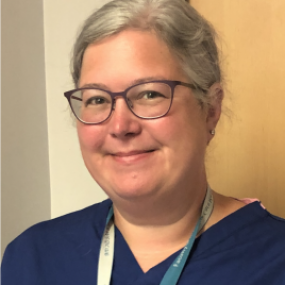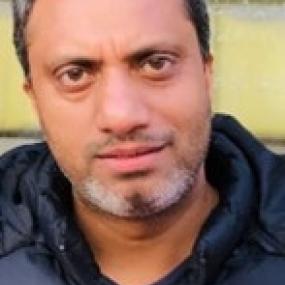Recruitment Blog Double: Getting a job during a time of change & Recruitment as an IMG

Liz is the Chair of the WICM Sub-Committee . She is a consultant in critical care and anaesthesia. When not at work, Liz sings as much as possible in several choirs and loves to explore the world with her family.

Shashikumar is a Consultant in Anaesthesia and Critical Care and a member of FICM’s Careers Recruitment and Workforce Committee.
A recruitment blog double from Dr Liz Thomas and Dr Shashikumar Chandrashekaraiah.
Liz discusses getting a job in a time of change and Shashikumar tells us about recruitment as an IMG.
Getting a job during a time of change
Sometimes things don’t go to plan – I am sure we are all feeling that about 2020. Unfortunately, 2021 doesn’t seem to be starting much better, although I remain positive things will improve. As has been announced ICM ST3 recruitment has sadly had to be changed this year – to make the process work and keep everyone safe. Despite the pandemic the faculty (and all the Royal colleges) are working hard to keep training moving forward and therefore recruitment and exams just have to carry on.
Having been personally affected by ‘modernising medical careers’ and applying for my ST3 job during the MTAS time I fully understand the problems, anxieties and difficulties faced by our junior doctors applying for training at this uncertain time of change. It may have been 14 years ago but I still clearly remember the emotional rollercoaster and the huge disappointment when a faceless computer system (which regularly crashed and refused to let people log on) told me that I had not been shortlisted for any jobs. And of course there wasn’t an ongoing pandemic at the time to add to the stress either.
However, things turned out ok in the end and although this year is a different to normal – I think I have some tips to help trainees faced with the online recruitment process this year.
Firstly – Seek assistance. In my opinion this is vital to everyone. Self scoring is a new experience and some people will naturally undersell themselves. It is certainly worth asking an experienced trainer to look through your form and score it with you, the experienced eyes may be able to help you maximise your points, which will be very important this year.
Also, be positive – but remain realistic. Some people may be tempted to give themselves full marks for everything, but of course this is a probity issue and therefore also be careful not to over score!
Don’t panic. Things generally work out in the end. If you are unlucky this time then take advice for next time. There are lots of clinical fellow posts available in many places and the extra time can be used to strengthen your application.
I strongly believe that a problem shared is a problem halved, so please keep talking and good luck to all the doctors applying for specialist training this year.
Recruitment as an IMG
International Medical Graduates (IMG) with various NHS experience and specialty backgrounds apply for ICM ST3 posts. Their experience with portfolio and the interview process is variable depending on their NHS experience and they generally tend to underscore themselves in the self-assessments.
It’s important to get advice from consultants familiar with the portfolio and the interview process before starting the application. The consultants can review the CV/portfolio and help the IMG get an understanding on what various sections of the application process are looking for and explain the scoring matrix. A final review of the completed application by the same person will be helpful to make sure IMGs have maximised their scoring opportunities. Also, discussion with an IMG with a similar background who has gone through the interview process is really valuable as they will have the knowledge and experience of matching overseas qualifications/experience with the UK application process. If local support is not available, regional or support at faculty level should be sought.
Many areas of overseas experience can be used to score in various sections of the application but it’s important to support it with the appropriate evidence. Make sure to score yourself for any: prizes/achievements both within and outside of medicine in recent years, teaching experience during your post-graduate training days supported by evidence and also any voluntary/extra-curricular activities should receive a score in the non-clinical section of the application. Score yourself higher in the respective section based on whether the activity is local, national or international. Even though audits are not common outside of UK practice, any completed quality improvement or service development projects initiated and completed overseas can be scored in the audit section.
Overall understanding of the application process, appropriate guidance and support from consultants/Fellow IMGs familiar with the process and use of overseas experience/activities wherever possible accompanied by appropriate evidence should maximise the chances of being successful at ICM National Recruitment for the IMG candidates.
